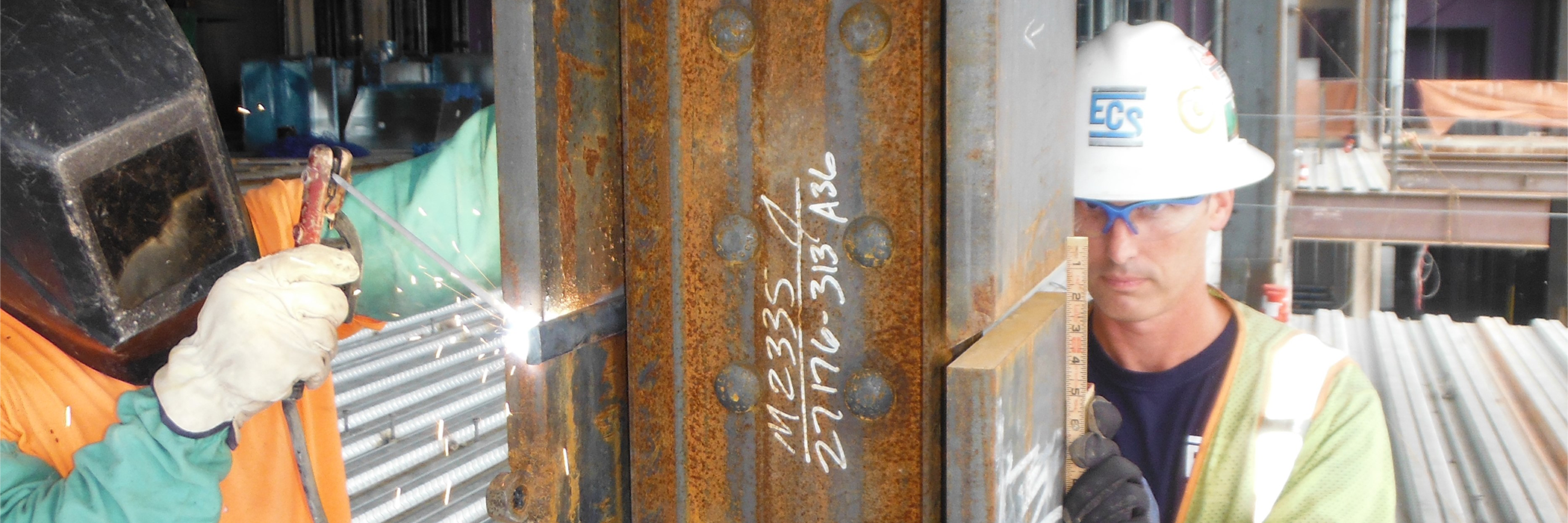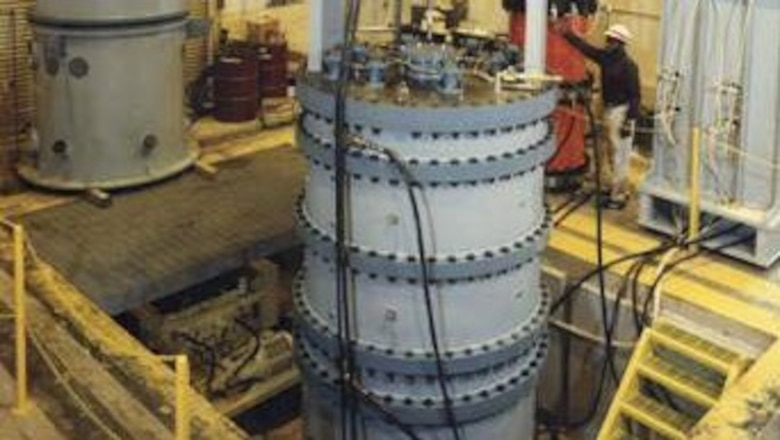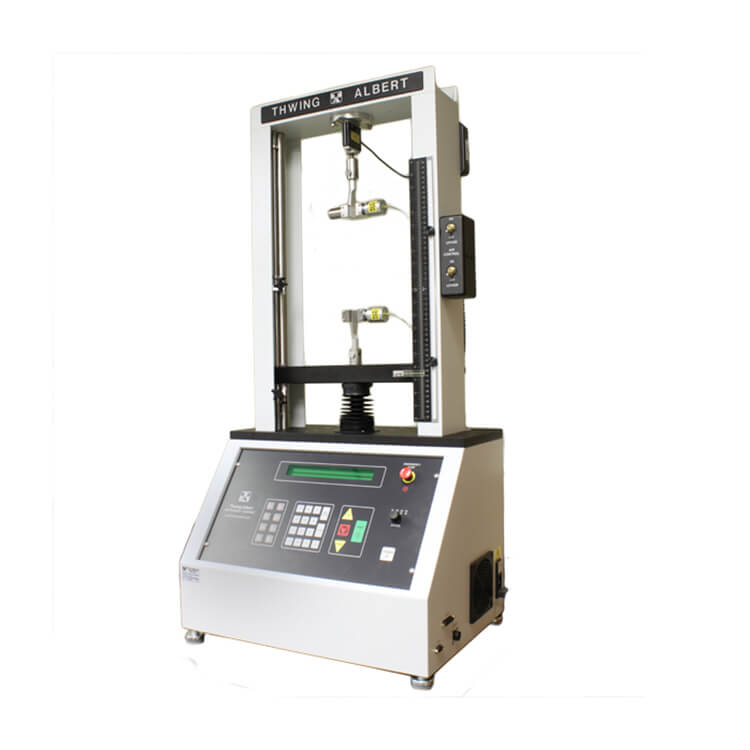Enhance Product Reliability with Our Cutting-Edge Materials Test Lab
Wiki Article
Advanced Products Screening Solutions for Reliable Results
In the world of materials screening, precision and precision are of utmost importance. With the ever-increasing complexity of innovative products, it is crucial to depend on reputable and robust testing services. This is where innovative products screening solutions enter play. These services use advanced techniques and modern logical instruments to ensure thorough and precise outcomes.Non-destructive screening strategies allow for extensive evaluation of products without compromising their honesty. Advanced logical instruments offer important insights right into the properties and habits of materials at a microscopic degree. High-temperature screening options make it possible for the evaluation of products' efficiency under extreme problems.
Additionally, progressed mechanical testing approaches offer a deeper understanding of the mechanical buildings of materials. Personalized screening remedies deal with details demands and challenges of different industries.
By using these sophisticated materials testing options, industries can confidently make informed decisions based upon reputable and credible results.
Non-Destructive Examining Strategies
Non-destructive screening techniques play an important function in ensuring the dependability of advanced materials by enabling precise assessment without causing damage. These techniques are crucial in sectors that count on the efficiency of materials such as aerospace, automotive, and building and construction.One of the most usual non-destructive screening techniques is Visual Inspection, which includes inspecting the surface of a product for problems, such as fractures, corrosion, or delamination. This method is cost-efficient and simple, making it a popular selection in numerous sectors.
One more widely made use of strategy is Ultrasonic Testing (UT), which uses high-frequency acoustic waves to discover inner imperfections or inconsistencies in products. By assessing the representation of sound waves, UT can provide beneficial information regarding the thickness, stability, and thickness of a product. This strategy is specifically efficient for discovering covert fractures or voids in metals, composites, and various other products.
Magnetic Particle Examining (MT) is one more non-destructive technique that is commonly utilized to discover surface and near-surface issues in ferromagnetic materials. By using electromagnetic fields and magnetic bits to the product, MT can determine splits, joints, and other imperfections that might compromise its architectural integrity.
Advanced Analytical Instruments
Using sophisticated innovation, progressed logical tools offer accurate evaluation of products for trusted outcomes. These instruments play a vital function in materials screening, enabling scientists and designers to gain a much deeper understanding of the structure, framework, and homes of different products.
An additional vital tool is the X-ray diffractometer (XRD) XRD enables researchers to assess the crystal framework of materials by measuring the diffraction pattern of X-rays that interact with the example. This technique provides information concerning the setup of atoms within the material, helping to determine phases, crystallographic defects, and grain positionings.
Furthermore, advanced logical tools additionally include Fourier-transform infrared spectroscopy (FTIR), which analyzes the interaction in between infrared radiation and a product to identify its chemical structure and functional groups. Furthermore, strategies such as atomic pressure microscopy (AFM) and energy-dispersive X-ray spectroscopy (EDS) are employed to examine surface topography and important make-up, respectively.
High-Temperature Screening Solutions
To address the obstacles of materials evaluating at high temperatures, specialized services have actually been established to ensure reputable and accurate outcomes. High-temperature screening is essential in numerous sectors, such as aerospace, vehicle, and power, where products have to withstand extreme conditions. These services include making use of innovative tools and techniques that can deal with and imitate extreme temperatures.
An additional essential aspect of high-temperature testing remedies is the growth of innovative dimension and evaluation methods. These methods enable scientists to properly monitor and track the habits of products under extreme temperature levels. Non-contact dimension methods, such as thermal imaging and spectroscopy, are frequently used to examine thermal conductivity, development, and various other crucial material residential or commercial properties.
Additionally, high-temperature testing solutions often entail using sophisticated materials, such as refractory steels and ceramics, that can stand up to extreme heat without endangering their structural original site integrity. These products are made use of in the construction of components, sensing units, and other parts necessary for exact screening.
Advanced Mechanical Examining Approaches

One commonly used mechanical testing approach is tensile screening, which applies a controlled pressure to a material sample to gauge its capacity to withstand tension. This examination aids establish crucial mechanical residential or commercial properties such as stamina, ductility, and elasticity.
An additional innovative mechanical screening technique is firmness testing, which measures a product's resistance to imprint or penetration. This test is essential for assessing a product's capacity to stand up to wear, deformation, and fracture.
Furthermore, exhaustion screening is used to assess a material's resistance to repeated loading, imitating real-life conditions where parts experience cyclic stress and anxieties. This examination is specifically crucial for markets such as aerospace and vehicle, where the reliability and resilience of materials are essential.
Along with these approaches, progressed mechanical testing consists of impact screening, creep screening, and fracture durability screening, among others. These approaches give useful understandings right into a material's habits under different mechanical problems and assist ensure the dependability and security of different applications.
Custom-made Evaluating Solutions
Custom-made testing remedies are tailored to fulfill details requirements and give trustworthy and precise results in products testing (materials test lab). Each product has special buildings and features that call for customized testing approaches.One of the primary benefits of tailored screening services is their adaptability. They can be created to suit a wide variety of materials, consisting of steels, porcelains, polymers, and compounds. By recognizing the special buildings of each material, testing parameters can be maximized to make certain reliable and exact outcomes.
Another benefit of tailored screening options is their capacity original site to deal with specific testing requirements. Whether it is checking the mechanical residential properties, exhaustion habits, or thermal stability of a product, a tailored approach can be developed to fulfill these requirements. This guarantees that the screening process is efficient and effective, saving time and sources.
Customized screening remedies also provide the advantage of versatility. As new products and testing demands arise, these solutions can be changed and updated to accommodate the changes. This makes certain that the testing process remains up-to-date and pertinent in an ever-evolving sector.
Conclusion
To conclude, advanced materials checking services supply trusted outcomes via non-destructive testing techniques, advanced logical tools, high-temperature screening remedies, progressed mechanical testing approaches, and personalized testing solutions. These tools and strategies play an essential function in ensuring the quality and performance of materials in different sectors. Using these advanced testing techniques can boost the understanding, characterization, and optimization of products, causing enhanced item advancement and general effectiveness.With the ever-increasing complexity of innovative products, it is crucial to count on robust and dependable screening options (materials test lab). High-temperature screening services enable the assessment of materials' performance under severe conditions
Customized testing remedies are customized to meet specific requirements and offer trustworthy and precise results in products testing.One more advantage of personalized screening services is their capacity to resolve specific testing requirements.In verdict, progressed products testing services use dependable results with non-destructive testing techniques, advanced logical tools, high-temperature testing solutions, progressed mechanical testing methods, and personalized screening remedies.
Report this wiki page